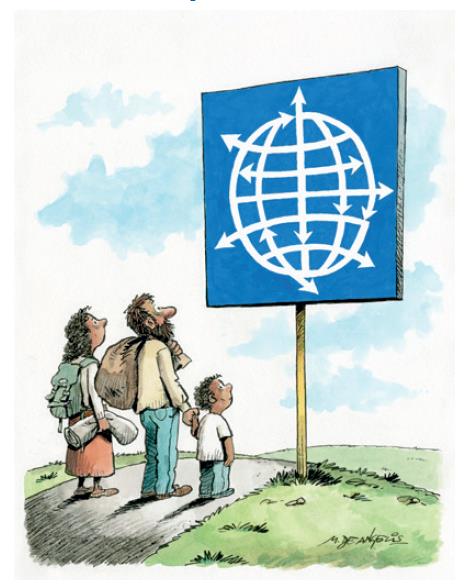Module 14: Impartiality
#Faith4Rights toolkit
Full text of commitment XIV
| We pledge to promote, within our respective spheres of influence, the imperative necessity of ensuring respect in all humanitarian assistance activities of the Principles of Conduct for the International Red Cross and Red Crescent Movement and NGOs in Disaster Response Programmes, especially that aid is given regardless of the recipients’ creed and without adverse distinction of any kind and that aid will not be used to further a particular religious standpoint. |
Context
Faith-based organizations manage a huge volume of social and humanitarian work across the globe. There is an inherent risk that such humanitarian assistance is delivered in a discriminatory manner or implies coercion with a view to conversion. Neutrality should be the test and thrust of humanitarian action. Faith actors can of course continue caring for the poor and needy among their own communities. The essence of this module lies in enhancing our capacity to transcend the boundaries of ethnic, national or religious origins of millions of poor and needy across the world. Granting all of them equal attention would elevate us to embrace the heart of humanity that unites us.
Additional supporting documents
In support of the peer-to-peer learning on commitment XIV, the training file should include: the Code of Conduct for the International Red Cross and Red Crescent Movement and Non-Governmental Organisations (NGOs) in Disaster Relief. Furthermore, the Special Rapporteur on freedom of religion or belief, Asma Jahangir, has focussed in her thematic and mission reports on complaints of “unethical conversions” by some NGOs with a religious agenda that work in development and humanitarian assistance. The issue came to a climax during the crisis that immediately followed the tsunami in 2004, when a large number of foreign humanitarian NGOs arrived in Sri Lanka and some were claimed to have taken advantage of the disaster to promote their religion: “The Special Rapporteur is of the opinion that these religious groups should make a clear separation between their humanitarian efforts and their religious work, respect other religious beliefs in their missionary activities and not use aggressive forms of proselytizing, as they could disturb the atmosphere of religious harmony and provoke further religious intolerance.” In 2020, her successor Ahmed Shaheed noted the following in his mission report on Sri Lanka: “Reported hostilities towards Jehovah’s Witnesses, Evangelicals and Muslims appear to be grounded in the perception that religious conversions threaten established hegemonies or ‘insult’ the doctrines and beliefs of the dominant religion in a given area. Often, these religious conversions are allegedly claimed to be ‘unethical’ and involve the ‘exploitation’ of vulnerable persons. The common complaint of both the Bodu Bala Sena and Siva Senai is that Buddhists and Hindus are being converted to Christianity through insults to existing religious practices and material inducement by Western-funded non-governmental organisations in Sri Lanka. They assert that, during the course of the civil war, many such exploitative religious conversions took place in the conflict-affected Eastern and Northern Provinces in particular. However, in 2005, the former Special Rapporteur on freedom of religion or belief during her visit found that the allegations of ‘unethical’ conversions had rarely been precise and had largely been overestimated. She also criticized the attempts to criminalize acts that were aimed at converting someone to another religion as an inappropriate response to the religious tensions.”
Peer-to-peer learning exercises
Unpacking: Participants break down commitment XIV into different components. They identify corresponding action points and stakeholders who should be responsible for their implementation. They also list areas of their possible contributions to this effect. (Individual exercise for five minutes followed by ten minutes of a full group discussion on the differences between individual listings).
Linking the dots: When discussing the relationship between these elements, the facilitator can refer to the history and functions of the major international organisations active in the area of humanitarian aid and relief and their historical connections with faith, including the International Committee of the Red Cross and the International Federation of Red Cross and Red Crescent Societies (collective exercise for ten minutes).
Critical thinking: A critical discussion on the relationship between these elements could start with the question if participants disagree with any of them? Should faith-based humanitarian aid be all inclusive or is it also possible that charity remains confined to one’s own faith boundaries? What are the comparative consequences in societies for each of these options? Can both options be combined and how? Are there missing elements in that commitment? (Collective exercise for 20 minutes)
Tweeting: Summarize the commitment XIV within 140 characters (individual exercise for five minutes). One possible result of this tweeting exercise could be as follows: “We commit to ensure that humanitarian aid is given regardless of the recipients’ creed and that aid will not be used to further a particular religious standpoint”.
Translating: Similar to the tweeting exercise, participants could be asked to “translate” this commitment into child-friendly language or into a local dialect. Again the idea is to stimulate discussion about the most important elements and appropriate ways of transposing and simplifying the message, without losing the substance of the commitment.
Storytelling: Participants share situations that occurred to them personally pertaining to this commitment and how they handled them. In particular, was there a situation where participants witnessed, while undertaking humanitarian assistance activities, aid being used to further a particular religious standpoint? Who are the different actors in their respective areas and how can they do better to ensure respect for the Principles of Conduct for the International Red Cross and Red Crescent Movement and NGOs in Disaster Response Programmes? Provide examples of the positive or negative role played by the media in this respect? (Collective exercise for 15-30 minutes)
With regard to complaints of ‘unethical conversions’, the facilitator may refer to the mission report on Sri Lanka by Special Rapporteur Asma Jahangir: “After the tsunami, it was reported that in the east of the country many have converted for health reasons because medical assistance and supplies were brought in by Christian nongovernmental organizations and groups. However, a significant number converted back to their original religions later, which sometimes provoked negative reactions from the community. […] Members of the communities blamed for aggressive proselytism have categorically denied using any coercive methods. Most have also denied using unethical methods, but a few have argued that inducement is central to all beliefs, like the promise of reward for being pious and adhering to the tenets of one’s belief. They claimed that there was inducement in all conversions like there was inducement in all political campaigns before elections, but ultimately the choice lies with every individual.”
Exploring: How can the lack of neutrality be redressed through religion? What should be the reaction of a religious leader when facing a situation where aid is not given regardless of the recipients’ creed? (General discussion for 15 minutes)


For further critical discussion, the facilitator may also refer to the Bishop of Truro’s Independent Review for the UK Foreign Secretary of Foreign and Commonwealth Office Support for Persecuted Christians (2019), which notably recommends the following: “The Foreign Secretary should request a FoRB-focussed discussion at a future full Cabinet meeting to consider, inter alia, the following: a. Where UK actions are delegated to international institutions/agencies (such as UNHCR) minority visibility among beneficiaries should be a priority. Humanitarian law mandating no ‘adverse distinction’ must not be used as a cover for making no distinctions at all and letting the majority community benefit disproportionately. […] In the light of the international observations identified in the course of this Independent Review regarding the negative consequences of the mantra of ‘need not creed’, active and urgent cross-governmental consideration must be given to rejecting this approach. The Foreign Secretary should reject the mantra in FCO foreign policy contexts entirely.”
The facilitator could read aloud this recommendation of the Bishop of Truro’s Independent Review and ask participants to discuss possible implications. The facilitator may also reiterate the first three Principles of Conduct in Disaster Relief: (1) The humanitarian imperative comes first; (2) Aid is given regardless of the race, creed or nationality of the recipients and without adverse distinction of any kind. Aid priorities are calculated on the basis of need alone; and (3) Aid will not be used to further a particular political or religious standpoint. The third principle explains the following concerning religions: “Humanitarian aid will be given according to the need of individuals, families and communities.
Notwithstanding the right of non-governmental humanitarian agencies to espouse particular political or religious opinions, we affirm that assistance will not be dependent on the adherence of the recipients to those opinions. We will not tie the promise, delivery or distribution of assistance to the embracing or acceptance of a particular political or religious creed.”
Adding faith quotes: Participants enrich the religious or belief quotes with additional suggestions that relate to commitment XIV (individual exercise for five minutes, followed by a reading from each participant of his added reference).
Inspiring: Participants may share artistic expressions they know of that capture aspects of the commitment under discussion. In addition, please find here the example of a cartoon, music and calligraphy.
Learning objectives
- Participants appreciate the correlation between human dignity for all and cohesive societies everywhere. Privileging some is dividing all.
- Regardless of religion or belief, any humanitarian aid should be calculated on the basis of need alone and not be given to further a particular religious standpoint.
- Participants realize the value of partnerships or at least synergies among various faith-based organizations in achieving their common social aid, empowerment and humanitarian goals on the ground.
previous module ¦ overview ¦ next module >